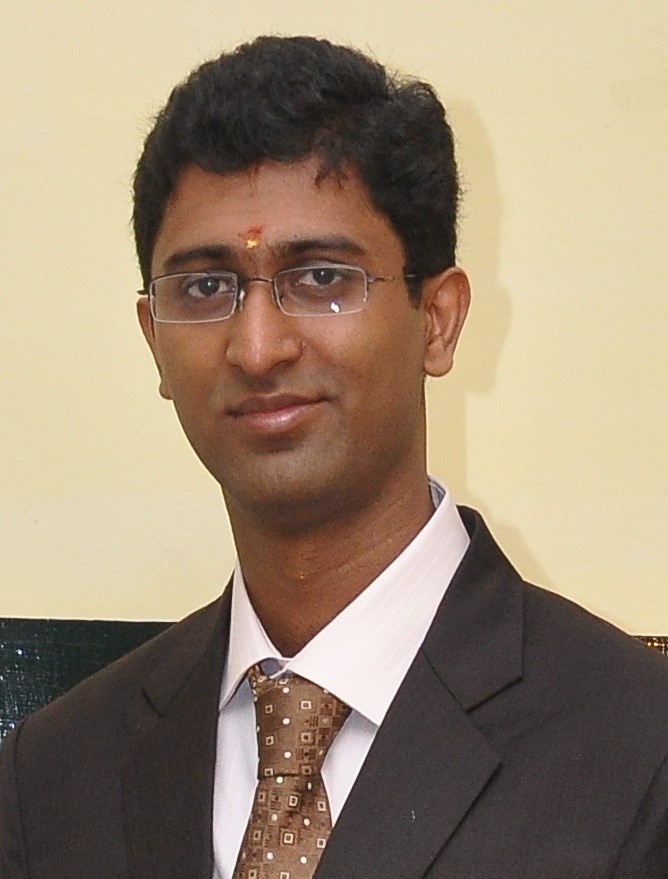Project
The scale and complexity of non-lane based, multi-modal and multi-class interactions and the magnitude of adverse impacts in heterogeneous transport system deserve immediate and focused research attention and technology development to achieve transformational and global impacts on safety, sustainability and mobility goals.
New opportunities and technologies for integration of these sub-systems (user, vehicle, traffic, and roadway) to achieve safety, emissions, and fuel savings are also envisioned. Capacity building on emerging multi-disciplinary transportation technologies at academic, industrial, and user agency levels is also a critical outcome for sustainable and scalable societal impacts.
The overarching research goal of the center is to develop and implement appropriate connected and integrated mobility solutions for highly heterogeneous traffic and transit system to yield substantial gains in:
- mobility
- safety
- sustainability
To achieve this broad goal, the following objectives are proposed:
- Develop framework for connected transportation technologies for heterogeneous traffic and transit systems.
- Establish laboratory facilities, instrumented test bed, and a test track for unified measurement and interactions among traffic, user, roadway and vehicle sub-systems in connected mixed traffic environments
- Design data collection plan and collect multi-scale and multi-sensor data linking user decisions, traffic conditions, roadway variables, and vehicle characteristics, under various configurations of connected environments.
- Advance methodologies and models for analysis of user decisions and heterogeneous traffic flows through a fusion of evolving data science techniques with rigorous analytical and simulation modelling techniques
- Develop algorithms and contribute to theories of traffic and transportation science in highly heterogeneous traffic by explicitly accounting for varying network, roadway, and technology characteristics resulting in high impact publications.
- Organize International Conferences to disseminate the research findings and solutions and conduct international outreach programs to various stakeholders
- Develop technologies and solutions for connected systems with high transformative societal impacts on safety, sustainability and mobility for heterogeneous transport systems in Indian and International contexts
- Develop an integrated simulation platform for planning and operation of future transport systems and evaluate impacts of the new mobility technologies in their various configurations at laboratory, test-track, and field scales.
- Develop decision support tools and guidelines for operations and deployment in smart cities in developing countries.
Work Plan

Given the technological focus of the Centre, it is proposed to establish a strong research infrastructure to support R&D into connected technologies for heterogeneous transportation environments. Three such facilities will be established through the center as described below:
- Development of Connected and Integrated Driving Environment through Simulation (DECIDES)
- Testbed of connected technologies for pilot studies and field data collection
- SmartTrack for Connected and Integrated Transportation Technologies
Multiscale Multisensor Data Collection Plan High fidelity multi-scale and multi-sensor data is critical for understanding and characterizing the interactions for developing robust models. Unfortunately, the availability of such datasets in the public domain is limited. Towards overcoming this limitation, the centre proposes to generate several high-quality datasets that will both promote high-quality research as well as visibility at the international level. Some of the datasets proposed include Trajectory and traffic state dataset, Multi-modal mobility dataset, Driver behaviour datasets for safety, Pavement condition dataset, Driving cycle, and emissions dataset. These datasets will support research and development of integrated models that capture interactions among various components of the transportation system.


The emergence of connected, shared, and electric transport have added to the complexities necessitating newer and more comprehensive integrated modelling frameworks.
We propose to develop an integrated decision support tool under the above emerging scenario. This tool will be the keystone of the project. This tool will be built on the data sets collected, the models built, and the algorithms designed in the phase 1 of the proposed work. The tool is envisaged to be an agent-based simulation platform that includes individual passenger agents as well as super agents such as TNCs, delivery companies, and public transit operators. Behavioural models to realistically capture their decision making will be integrated into the decision support tool. The unique features of the proposed tool include: explicit modelling of pavement-vehicles-traffic interactions. These interactions are expected to play a significant role in Indian and connected vehicle contexts especially when considering sustainability-based measures of effectiveness. Further the heart of the tool will incorporate heterogeneous traffic microsimulation models to reflect Indian heterogeneous traffic behaviour.
Expected deliverables of the research
Infrastructure: Integrated driving simulator, connected vehicle test best, SmartTrack for Connected and Integrated Transportation Technologies
Two monographs: On Connected technologies for mixed traffic flow and Data Science in Transportation
High impact publications in the area of connected ITS
Train 10 Doctoral scholars, 15 Postgraduate scholars, 2 Post-doctoral fellows
Joint international masters (~6 students/year) and PhD program (~2 students/year) on Connected ITS with focus on sustainable and safe mobility
Conference on connected transit systems in 2021 / 22.
Current status
Collaborations
International Collaborations
- Srinivas Peeta, Georgia Tech link
- Darcy Bullock, Purdue University link
- Ashish Bhaskar, Queensland University of Technology link
- Anuj Sharma link
- Laurence Rilett link
- Satish Ukkusuri link
International education programs, conferences/seminar/webinar links
- Joint international masters (~6 students/year) and PhD program (~2 students/year) on Connected ITS with focus on sustainable and safe mobility
- Conference on connected transit systems in 2021 / 22.
Societal impact
Benefits to various stakeholders can be summarized as follows:
Travellers
- Improved safety
- More efficient travel choices
- Reduced congestion, operating cost, pollution, fuel consumption
User agencies (CMDA, Traffic Police, MTC, Chennai Corporation, State Highways)
- Reduced congestion and improved capacity
- Data and decision support tools for evaluating new mobility systems
- Improved geometric and pavement management
- Lower life-cycle cost of infrastructure through better pavement management practices
Mobility Service Providers (on-demand ride-hailing companies), Vehicle Manufacturers (connected and EV companies), Freight and E-commerce Companies
- Datasets
- Models for analysis and design of transportation systems with connected and integrated data
- New applications and apps for mobility planning, vehicle management, traffic management, pavement management, and driver assistance and warning system to enhance safety
Benefits to Academia:
- State of the art research infrastructure, labs, testbed, and datasets for heterogeneous traffic and transit systems
Sustenance statement
In addition to the grant from IoE, the centre will strive to generate funds to ensure continuity and sustainability after the grant period through:
- Matching funds for projects from local, state, and central agencies and industry
- International Masters program
- Consultancy activities by the centre
- Projects for fee from agencies
- Joint Projects with user agencies
- Royalty and fees for products and tools developed at the centre
- Membership in the centre in the form of a Corpus






